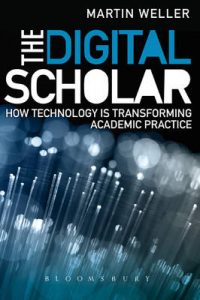
Yesterday we looked at privacy, and the content that you may wish to keep private. While academic staff are used to sharing the outputs of their learning (research papers etc), it can also be very valuable to share the process of getting to that point, and indeed, learning about things other than research.
Over the past few days, you’ve been thinking about the online tools you’re currently using while learning, and how you have been using them. You may have included in your PLE learning events that others have put together (e.g. a MOOC), and those that are entirely self driven (such as your blog)
We’ve also looked at privacy, and how you decide what you want to be private. In some cases, this division can be blurred. For example, if you participate in a MOOC, is it “public” – because anyone could enroll on the MOOC and see comments you post on your learning, or is it “private” – because others have to enroll on the MOOC to see the comments? If you use Twitter, and set your account to be protected (rather than the default public, which allows anyone, Twitter user or not, to see your tweets) – are you sure you know who everyone is who you’ve granted access to?
There is a great deal of value in allowing others to see the learning journey you’re taking, both to help your readers learn, and, often to support your own learning. One of the earliest blogs I came across, when looking at using blogs to support learning, was one (sadly no longer on line) created by a PhD student. She was looking at life in the trenches, the engagement she got with others – often children of those who’d served in the 1st World War, as she documented her research, gave her a much more in depth view of life in the trenches, than had she not made the research easily available to the public.
As an open (or public) learner, it can be very daunting, to know that others have the potential to see what you are doing, and that material may be found at any time. While finding material for this section, I came across a blog post by Inger-Marie C. She’s only written blog posts (on that blog), over 3 months, and I don’t know her full name. I do know, however, that she’s participated in an OU course about Open Learning, is clearly outlining what she’s learned – as well as providing me, the reader, with links to relevant other research – much of which, given the nature of the blog, is relevant to this theme.
Thinking about the tools that you have included in the PLE, which, at present, would you see as being valuable to others for their learning?
Could you see ways of adding to those tools you are using to further enhance your learning footprint? How public do you want to be?
Next week, we will be looking at an OU course “The Digital Scholar“. It’s run by Martin Weller, and based on his book of the same name. (shared as CC on the Bloomsbury Press) OU Open Learn Courses, unlike FutureLearn MOOCs, are open ended, with no start / end date.
Some of the earlier MOOCs looked very much at connected online learning, in particular those run by Stephen Downes and George Siemens, and, while there is debate about the role they played, they were key to raising awareness of the power of shared, online learning experiences.
LSE have a range of blogs, and, while they mainly focus on completed research, rather than the process of learning, they provide a powerful way of engaging with others.
We’ll go for a nice easy watch today for the link of the day!


